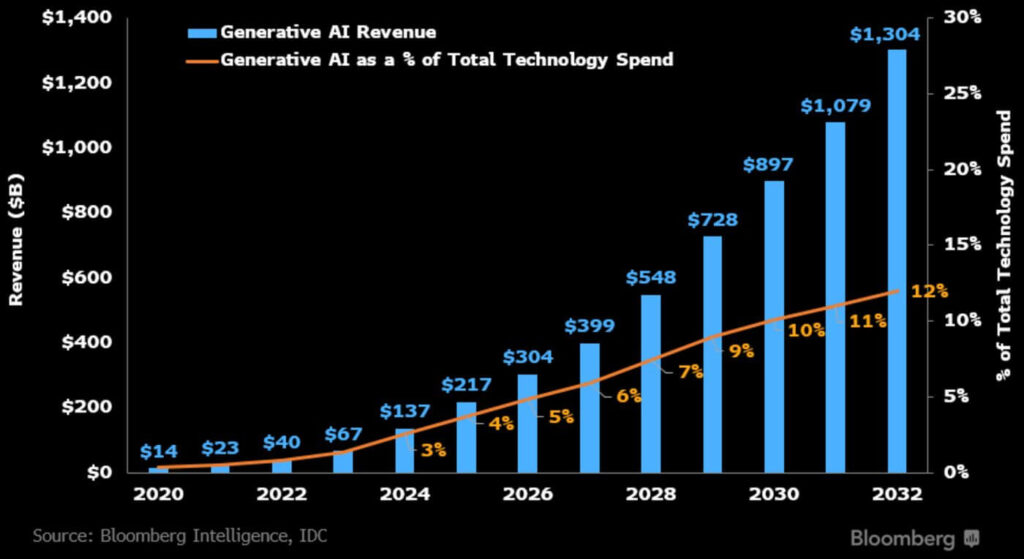There’s a modern day gold rush underway and it’s powered by artificial intelligence. Across the globe, AI startups are sprouting at an unprecedented pace, attracting billions in funding and capturing the attention of entrepreneurs, investors, and technologists alike.
From generative tools and autonomous agents to AI-powered diagnostics and financial advisors, startups are no longer just participating in the AI wave—they’re shaping it. So what’s behind this exponential rise?
In this deep dive, we’ll explore what’s fueling the boom of AI startups in 2025, the forces enabling them, and the opportunities ahead.
Defining an AI Startup in 2025
AI startups in today’s world go far beyond machine learning apps. They’re defined by:
- AI-first approach: Products and services centered around intelligent systems.
- Speed and scalability: Agile, cloud-native, and designed for global scale.
- Innovation-led: Leveraging the latest in neural networks, transformers, and multimodal tech.
Unlike traditional tech startups, AI startups often iterate faster, rely heavily on open models, and integrate with other ecosystems via APIs and LLMs.
Key Technologies Powering the AI Startup Explosion
Several breakthroughs have laid the groundwork for the AI startup surge:
- Large Language Models (LLMs): GPT-4, Gemini, Claude, and open-source rivals allow startups to build apps with conversational interfaces and reasoning.
- Multimodal AI: Combining text, images, and video opens up opportunities in creative tech, medicine, and e-commerce.
- Edge AI: AI running on local devices (e.g., drones, wearables) expands use cases in security and healthcare.
- Generative Models: From Sora to Stable Diffusion, startups now produce AI videos, designs, and voices at scale.
With such capabilities readily accessible, building a powerful AI product is no longer reserved for giants.
Democratization of AI Tools and APIs
Thanks to open-source libraries like Hugging Face, LangChain, and OpenLLM, anyone with basic coding skills can build intelligent applications. Startups also leverage:
- Pre-trained APIs from OpenAI, Cohere, Mistral, and Anthropic.
- No-code AI builders like Bubble, Peltarion, and Cogniflow.
- LLM agents with plug-and-play capabilities.
This democratization has lowered technical barriers and invited a new wave of founders, including solo developers and creators.
Availability of Funding and Investor Interest
VC firms, angel investors, and even governments are pouring money into AI ventures. Key factors include:
- High-growth potential with low initial capital needs.
- FOMO among investors after witnessing billion-dollar valuations.
- M&A prospects by Big Tech, which frequently acquires AI startups for talent and IP.
In 2024 alone, over $80 billion was invested into AI startups globally—with 2025 on pace to surpass it.
Role of Cloud Infrastructure and AI-as-a-Service
Cloud providers like AWS, Google Cloud, and Microsoft Azure have been critical enablers. Startups now access:
- Scalable GPU infrastructure without buying hardware.
- Managed ML platforms that reduce development time.
- AI-as-a-Service models that offer vision, speech, and language capabilities on-demand.
These platforms let even small teams deploy AI models to millions with reliability and speed.
Cross-Industry Applications Driving Startup Ideas
AI startups are thriving in diverse sectors:
| Industry | Startup Use Case |
|---|---|
| Healthcare | AI imaging, diagnostics, clinical assistants |
| Finance | Robo-advisors, fraud detection |
| Legal | AI contract review, compliance checks |
| Media | Video editing, scriptwriting, dubbing tools |
| Retail | Personalized recommendations, inventory AI |
| Education | AI tutors, grading assistants |
By solving niche problems with AI, these startups gain early traction and loyal users.
Global Expansion: Startups Beyond Silicon Valley
While Silicon Valley remains a central AI hub, 2025 has seen the rapid globalization of AI startup ecosystems.
Emerging AI Hubs:
- India: With government-backed AI labs and an abundance of tech talent, cities like Bengaluru and Hyderabad are brimming with generative AI ventures.
- Europe: Berlin, Paris, and Stockholm boast startups focused on privacy-centric and ethical AI.
- Africa: Nairobi and Lagos are pioneering AI solutions in agriculture, fintech, and healthcare.
- LATAM: Mexico City and São Paulo have fast-growing AI companies in language localization, logistics, and education.
Governments and international coalitions are also funding AI incubators and offering grants to foster innovation in underserved markets.
Role of Academia and Open Research in Startup Formation
Universities and research labs are fertile ground for AI innovation. Many startups in 2025 are academic spin-offs, formed by professors, researchers, or students who translate their papers into products.
Key Contributions:
- MIT, Stanford, and Oxford continue to lead AI entrepreneurship.
- Open access research allows startups to build on cutting-edge findings.
- Initiatives like EleutherAI and LAION offer open data/models for commercial use.
This bridge between academia and entrepreneurship accelerates idea validation, technical rigor, and global impact.
Strategic Partnerships and Acquisitions
Big Tech isn’t just building AI—it’s buying or partnering with those who do.
- Microsoft, Google, and Amazon frequently acquire startups with niche technologies (e.g., vector databases, model compression, privacy tools).
- Media companies collaborate with AI startups to create new storytelling formats.
- Fintechs and healthcare giants partner with AI startups to enhance data analysis and service delivery.
Such collaborations help startups scale fast while adding value to legacy systems.
Impact of Remote Work and the Creator Economy
The post-pandemic world has redefined startup culture. Many of 2025’s top AI startups are:
- Fully remote: With global team members and asynchronous workflows.
- Solo or duo-founded: One-person startups leveraging APIs and no-code tools to build and ship products.
- Creator-focused: Serving independent writers, designers, developers, and educators with AI toolkits for faster content creation.
This convergence of remote work and AI accessibility lowers overhead and speeds up time-to-market.
Regulatory Landscape and Ethical Startups
Regulation, often seen as a threat, has actually spurred innovation in AI compliance and safety.
- Startups now focus on model explainability, data privacy, and bias mitigation as competitive advantages.
- Tools for AI watermarking, output auditing, and transparent decision logs are in demand.
- Countries like the EU, UK, and Canada have introduced AI-specific legal frameworks, prompting startups to embed ethics from the start.
This shift has created a wave of “ethical AI startups” that prioritize user trust, compliance, and responsible use cases.
Success Stories and Unicorn Startups in AI
Let’s look at some notable AI startups that have made headlines:
| Startup | Category | Achievements |
|---|---|---|
| Hugging Face | Open-source LLMs | $4B valuation, NLP powerhouse |
| Runway | Generative Video | Tools for creators, Sora-style tech |
| Perplexity AI | Search & QA | Raised $100M+ for real-time AI search |
| Mistral AI | LLMs | Europe’s answer to OpenAI |
| Synthesia | AI Avatars | Used in corporate training and media |
| Character.AI | AI Companions | Billions of interactions monthly |
These companies show the range of AI’s application—from developer tools to consumer entertainment.
Challenges AI Startups Face Despite the Boom
Despite the momentum, challenges remain:
- High compute costs: Training or fine-tuning models requires expensive GPU infrastructure.
- Data limitations: Access to high-quality, unbiased datasets is scarce.
- Monetization hurdles: Many struggle to move from free tools to revenue-generating models.
- Talent wars: Competing with Big Tech for AI researchers and engineers is tough.
Startups must balance innovation with sustainability, especially as competition intensifies.
Predictions: The Future of AI Startups in the Next 5 Years
Looking ahead, we can expect:
- Rise of “AI-native” companies: Startups where every layer is optimized with AI.
- Vertical-specific AI: Tailored tools for agriculture, law, manufacturing, and education.
- Sustainable AI practices: Energy-efficient models and ethical data sourcing.
- AI agents and co-pilots: Startups building assistants that don’t just suggest—but act.
The next generation of startups may look less like apps and more like intelligent systems that evolve alongside their users.
Conclusion
The rise of AI startups marks one of the most exciting and transformative chapters in tech history. What started as niche projects by academics and coders has grown into a global wave of innovation, touching every corner of society.
Fueled by open technology, global talent, and real-world need, this AI startup boom is not a fad—it’s the foundation for how we’ll solve problems, build businesses, and express creativity in the coming decades.
So whether you’re a developer, investor, student, or entrepreneur the AI era is wide open. Now’s the time to jump in.


